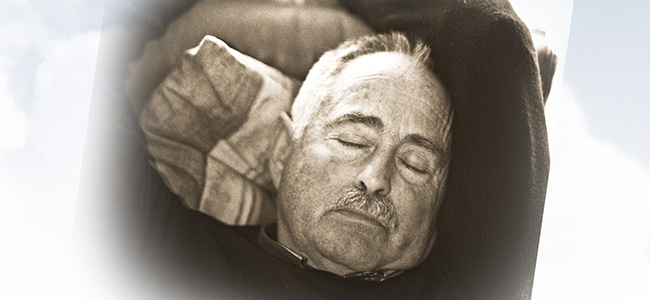Treasuring the Privilege of Fatherhood

At last, in his old age, the grace of God brought him to a better mind. And this is substantially the account which he himself gave of the method of his change.
One night, when retiring at his customary hour, and in his usual health, he had the following dream:
He dreamed that he had died, and entirely self-conscious, he found himself in what seemed to be a spacious apartment, from which there was but one exit, and that by a large door. Upon the wall above it he distinctly read in large characters this sentence: “You shall pass from this room directly into heaven, whenever you can show that you have paid all your debts.”
“O,” said he, “then I shall go at once to heaven, for I am sure that nobody can say that I owe him a farthing.”
Just then he heard a confused noise outside the door, as if a number of persons were seeking admittance. Then it opened, and a pale, sickly-looking stranger approached him, and said:
“I am come to demand the payment of my debt.”
“I owe you nothing. I do not remember that I ever saw you in all my life.”
“Do you not remember,” said the pale stranger, “about twenty years ago, when on a hot and dusty summer day, as you were riding in your carriage to Boston, that you overtook a stranger, weary, sick, and poor. Do you remember the imploring look which he cast upon you, asking you that you give him a ride, and how regardless of his appeal, you dashed along, and left him almost fainting by the wayside? I was that sick stranger, on my way to the hospital. You owed me a ride. Not by the rules of earthly law, but by that code which is the law of Christ’s kingdom. You owed a ride; and that debt stands charged against you on God’s book, with interest through all those twenty years.”
New thoughts began to work in the man’s mind, but before he could speak, another person advanced and accosted him: “I have come for the payment of my debt.”
He recognized in the speaker a former poor neighbor, and replied: “Surely I owe you nothing?”
“Did you not once buy a cow from me?”
“Yes, I remember that, though it’s a long time ago. But I paid you for her.”
“Yes,” replied the man, “but do you not remember the circumstances - the hard winter, my sick family, my failure to get work, so that, to save myself and household from starvation, I was forced to sell that cow at half her real value. And you, my rich and powerful neighbor, took advantage of my situation, and I was forced to take your offer, though you knew as well as I that it was no fair price. You owe as much more, by God’s law, by heaven’s jurisprudence, and it’s been on interest all these years.”
Mr. _____ sank back, conscience-stricken and condemned. He saw through the half-open door a vast crowd of persons struggling for admission, each bringing a claim against him, which he felt was just. Overwhelmed with confusion and remorse, with his sins staring him fully in the face, and in despair of finding a way to meet these accumulated obligations, he exclaimed at last:
“O God of mercy, show me how I can be released from these claims; show me how I can be saved from these debts which I can never pay.”
Just then the writing faded from the wall, and in its place he saw these words:
“The blood of Jesus Christ his Son cleanseth from all sin” (1 John 1:7).
“Ah!” cried he, that is what I need”; and with these words he awoke to renounce his own righteousness, and to cast himself with penitence and faith upon the great atonement, and to find peace and joy in believing in Jesus.